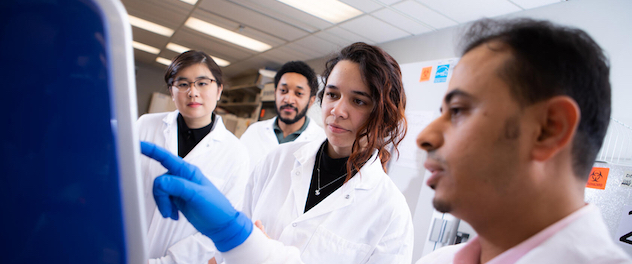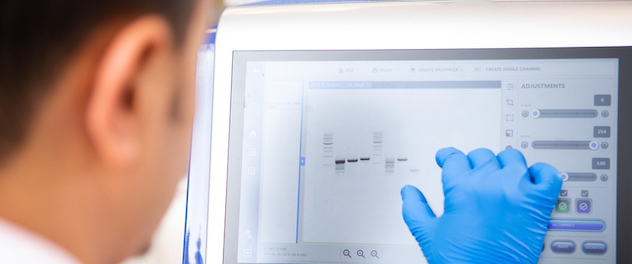-

Understanding the genetic basis for liver disease
Dr. Wangensteen's lab performs genomic analysis of samples to find links between patient genetic makeup and liver disease risks.
-

Applying cutting-edge genetic tools to liver disease
The Wangensteen lab uses CRISPR-Cas9 technology to perform genetic screens in models of liver disease.
-

Translating discoveries into new treatments
The goal of the Genetics of Liver Disease Lab is to identify new targets for therapy and develop new treatment approaches to liver disease.
-

Commitment to excellence
Dr. Wangensteen's research team is committed to solving significant problems that affect patients. His lab uses cutting-edge techniques in the context of an excellent training environment assisted by key collaborations.
Overview
Liver diseases are a major source of liability and mortality worldwide. The Genetics of Liver Disease Laboratory at Mayo Clinic, led by Kirk J. Wangensteen, M.D., Ph.D., focuses on better defining the genetic factors involved in liver disease progression and the development of liver cancer. The lab's goal is to make clinical impacts by improving the understanding of disease biology and developing new therapeutics.
The overarching conceptual questions addressed by Dr. Wangensteen's lab are:
- What are the genetic pathways that drive liver regeneration in the setting of injury that include principles of cellular identity and plasticity?
- Which genes drive hepatocellular carcinoma and contribute to therapeutic resistance?
These two interrelated themes are united further by the lab's desire to unravel the fundamental aspects of hepatocyte cellular programming and reprogramming, and the relationship to regeneration and transformation.
Sequencing technology has helped uncover the mutations and expression changes linked to liver injury and liver cancer. But more work is needed to uncover which genes or mutations are driving — or, in some cases, mitigating — disease. In other words, genes with important and direct functions need to be distinguished from the majority of genes without direct effects on liver disease.
The Genetics of Liver Disease Laboratory has cutting-edge mouse models that can determine which genes directly affect liver disease processes. In particular, the laboratory employs genetic screening performed using the livers of mice to characterize gene functions in liver disease. The results are validated against human cell lines and data to ensure relevance to patients. This way, the lab achieves mechanistic insights into liver diseases and identifies targets for therapeutic applications.
The lab is involved in a range of projects, including:
- Early discovery using genetic screens in mouse livers.
- Mechanistic work to identify gene function and regulation of genetic pathways.
- Collaborative work to apply genetic tools for gene delivery and screening.
- Human studies to identify genetic associations for liver diseases in patients.
Patient resources
Learn more about: